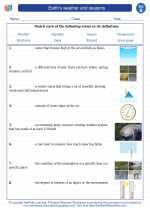Earth's weather and seasons -> air pressure
What is Air Pressure?
Air pressure is the weight of the air above a certain area. As you go higher in the atmosphere, the air pressure decreases because there is less air above pushing down. At sea level, the average air pressure is about 14.7 pounds per square inch (psi).
Factors Affecting Air Pressure
Several factors can affect air pressure, including altitude, temperature, and weather conditions. As altitude increases, air pressure decreases. Temperature also affects air pressure - as air gets warmer, it expands and becomes less dense, leading to lower pressure. Conversely, colder air contracts and becomes denser, resulting in higher pressure.
Measuring Air Pressure
A barometer is the instrument used to measure air pressure. There are two main types: mercury barometers and aneroid barometers. Mercury barometers use the height of a column of mercury to measure pressure, while aneroid barometers use a flexible metal box to detect pressure changes.
Effects of Air Pressure
Air pressure plays a crucial role in weather patterns. Areas of high pressure generally bring fair weather, while low pressure often brings clouds and precipitation. Additionally, air pressure affects human and animal physiology, as changes in pressure can cause discomfort or health issues, particularly during activities like scuba diving or flying in an airplane.
Study Guide
.◂Science Worksheets and Study Guides Second Grade. Earth's weather and seasons

 Worksheet/Answer key
Worksheet/Answer key
 Worksheet/Answer key
Worksheet/Answer key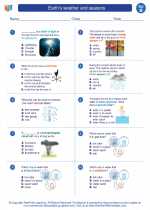
 Worksheet/Answer key
Worksheet/Answer key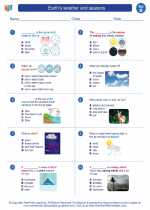
 Worksheet/Answer key
Worksheet/Answer key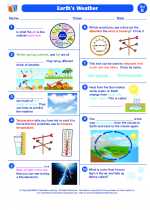
 Vocabulary/Answer key
Vocabulary/Answer key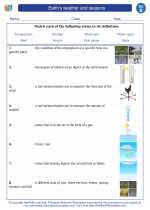
 Vocabulary/Answer key
Vocabulary/Answer key